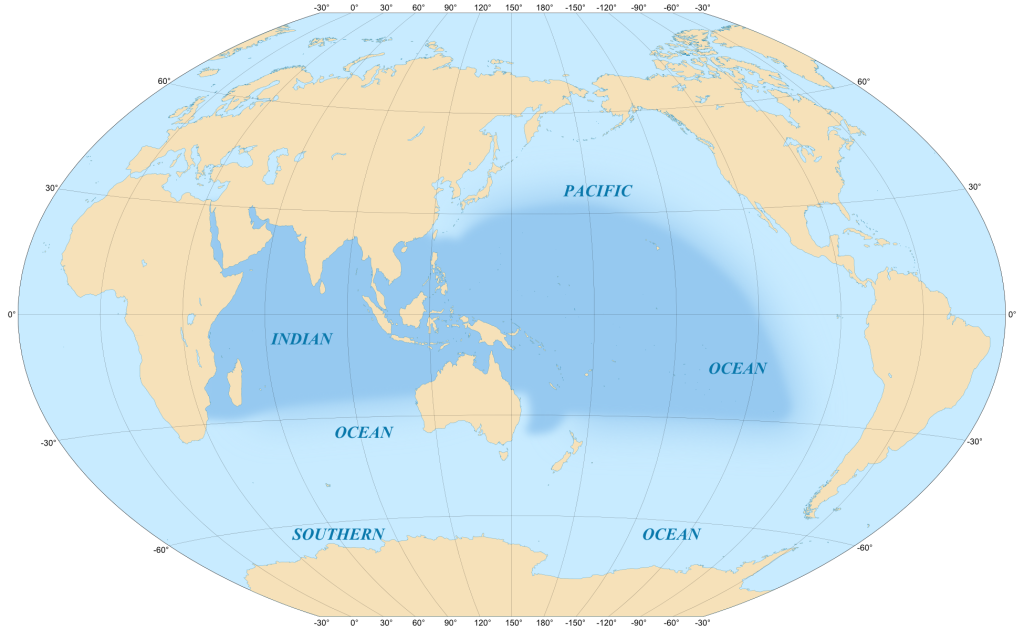06 Apr India’s changing strategic geography
This article covers ‘Daily current affairs’ and the topic details the article ’How Delhi maps the world ’ written by C. Rajamohan in Indian express. This topic has relevance in the International relations and security section of GS2 and GS3 of UPSC CSE exam.

There is a visible shift in the power dynamics from west to east especially after the belligerent rise of China, which is exercising its assertive foreign policy across the Indo pacific. China has been implementing its String of Pearls policy by establishing a network of ports and commercial and military outposts across numerous nations. China has used this tactic to safeguard its commercial interests because a significant portion of its trade goes via the Indian Ocean and several choke points, including the Strait of Hormuz, the Strait of Malacca, and the Strait of Lombok.
Indian policymakers view Chinese strategy as its strategic encirclement and breach in its sphere of influence in South Asia and Indo- pacific. In this context, India has to maneuver its foreign policy to tackle Chinese belligerent rise in South asia.
India’s engagement with the island nation in the indo- pacific is a reflection of this trend in changing foreign policy and a realization of the importance of increasing its sphere of influence in the Indian ocean region.
Importance of Indian ocean region for India
The Indian Ocean holds immense significance for India due to several reasons:
- Trade and Connectivity: The Indian Ocean serves as a vital maritime route, connecting various international economies. Approximately 90% of India’s trade by volume and nearly all its oil imports are facilitated through sea routes. This underscores the region’s critical role in maintaining global trade networks.
- Resource Dependence: India heavily relies on the resources of the Indian Ocean. These resources include fisheries, minerals, and other valuable marine assets. Sustainable utilization of these resources is crucial for India’s economic growth.
- Energy Security: The Indian Ocean acts as a major conduit for international energy trade. Oil tankers and liquefied natural gas (LNG) carriers navigate these waters, ensuring a steady supply of energy to India and other countries.
- Security and Stability: Ensuring security and stability in the Indian Ocean region is paramount. India actively participates in maritime security initiatives to counter piracy, terrorism, and other threats.
- Geostrategic Position: India’s geographical location along the northern rim of the Indian Ocean grants it strategic advantages. It allows India to engage with neighboring countries, foster diplomatic ties, and safeguard its interests.
India’s recent initiatives in Indian ocean
India has taken several measures to for increasing cooperation in Indian ocean region:
- SAGAR Initiative-In 2015, India unveiled its strategic vision for the Indian Ocean i.e. Security and Growth for All in the Region (SAGAR). It is an increasing recognition of the increasing importance of maritime security, maritime commons and cooperation.
- Joint development of Agalega island with Mauritius to boost strategic partnership in the Indian ocean region.
- Development of Nicobar island as a transhipment terminal.
- India’s role as Net security provider in the Indian ocean region, which was reflected when Indian navy safeguarded Pakistani fishing vehicles from pirates.
- India was actively engaged in various humanitarian operations such as disater relief operations deploying personnel and resources to address the aftermath of events such as earthquakes and cyclones.
- Medical diplomacy– India through its vaccine ‘Maytri’ program delivered free vaccines to many countries in the Indo- pacific.
- India’s necklace of diamond policy- The Necklace of Diamonds strategy is India’s response to China’s String of Pearls strategy, which involves expanding its military network and influence in the Indo-Pacific and Indian Ocean regions. The Necklace of Diamonds strategy involves encircling China by improving India’s naval presence, expanding its military bases, and enhancing its relationships with other nations in the region.
Thus, the Indo-Pacific region is increasingly becoming an important focal point of India’s foreign policy. In this respect, cooperation with small island nations in the indo pacific is strategically crucial for protecting national interest in changing geopolitics.
Download plutus ias current affairs eng med 6th April 2024
Prelims Question
Consider following statements regarding Indian Ocean Commision (IOC):
- Its headquarter is located in Seychelles.
- France is a member of the IOC.
- Ensuring food security is one of the aims among member countries.
Which of the following are incorrect.
- Only1
- Only2
- All 3
- None
Mains Question.
The Indian Ocean region is critical for India’s National security. Discuss in context of Chinese string of pearls policy.




No Comments